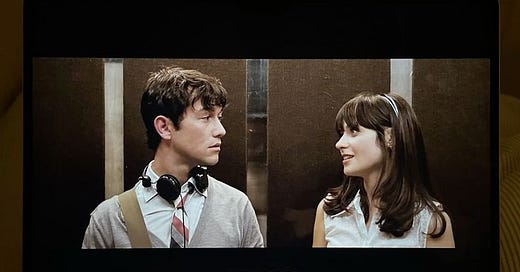The "Nice Guy" trope in movies and media has long shaped how men perceive themselves in relation to women, and how they believe women should respond to their "kindness." From Tom in 500 Days of Summer to Nick Dunne in Gone Girl, we see men who think they are different from stereotypical "bad boys’’ or the average man, yet they still expect women to pander to their needs simply for displaying basic decency. In reality, their so-called "niceness" is often just entitlement in disguise.
Tom in 500 Days of Summer epitomises the Nice Guy who believes he deserves love simply because he isn't openly cruel. He idealises Summer, projecting his own fantasies onto her, and when she doesn't conform to them, he frames himself as the victim. His kindness is conditional, it's only extended as long as it serves his personal desires. Which in the movie is to be in a long-term relationship with Summer. When he doesn’t achieve this goal, he lashes out emotionally, demonstrating that his niceness was never selfless in the first place.
Nick Dunne in Gone Girl presents another angle. While not as overtly the "Nice Guy" in a romantic sense, his dynamic with his sister, Margo, is telling. Margo constantly caters to Nick, standing by him despite his failures as a husband and his emotional detachment. Their mother’s favoritism towards Nick as her "golden boy" reflects a patriarchal issue: of ‘boy mums’ but also how women are often expected to put men’s needs first, even when those men fail to do the bare minimum in return.
Many Nice Guys in media and real life operate under a savior complex. Because they believe they are so different from the stereotypical "bad guys," they assume they should be rewarded with a girlfriend, sex, or unwavering emotional support. This sense of entitlement is not just misguided but often veers into misogyny. They despise "Chads" - men they see as effortlessly successful with women—while failing to recognise that their own bitterness and self-victimization are what drive women away.
At their worst, some self-proclaimed "Nice Guys" turn into incels - men who resent women for not giving them the romantic or sexual attention they feel owed. These men are often quick to complain that women only want "bad boys" or men who treat them terribly while ignoring the reality that personality and respect matter more than self-pity and passive-aggression. They don’t consider that their failure in relationships isn’t due to being "too nice" but rather because their kindness is conditional and self-serving.
A fundamental truth about genuinely kind people is that they don’t need to broadcast it. When a man insists that he’s a "nice guy," it’s often a deflection - a way to manipulate or guilt-trip women into giving him something he believes he deserves. True kindness doesn’t come with an agenda, nor does it demand recognition. It’s also important to note the distinction between ‘niceness’ and kindness, especially when navigating romantic relationships.
The media’s depiction of Nice Guys reinforces unhealthy narratives that bleed into real-life dating dynamics. It’s crucial to dismantle the idea that women owe men anything for basic respect and to challenge the belief that kindness should be transactional. Relationships shouldn’t feel like complex equations that are difficult to solve.
Embodying this mindset has helped me recognise red flags early on. I’m not some damsel in distress under attack by loneliness. Dating a man should be refreshing - it should be an addition to one’s life, not a remedy for emptiness. The Nice Guy lives in his own world where everything must be transactional and operational, but love that is kind is naturally reciprocal and finds its own equilibrium. In the end, being decent should be the bare minimum - not a bargaining chip for love, sex, or validation.




